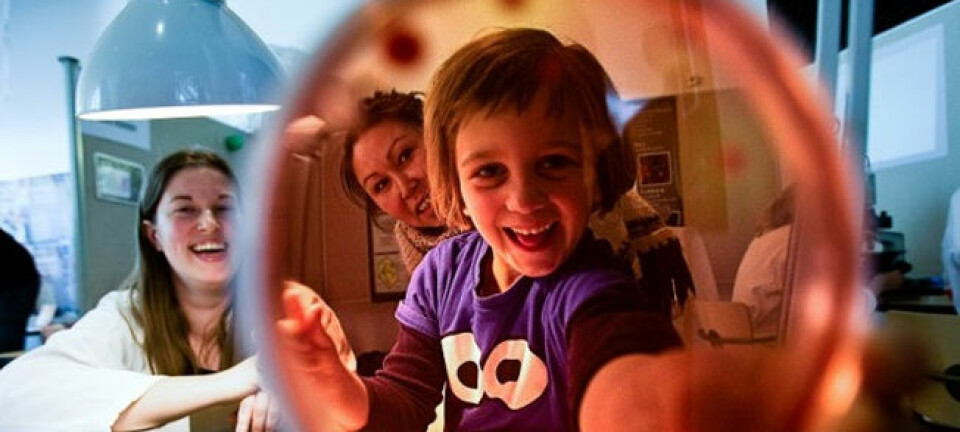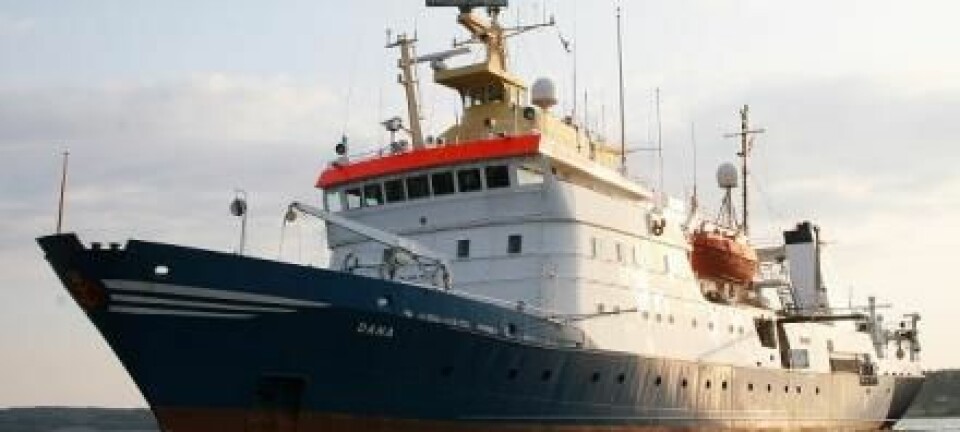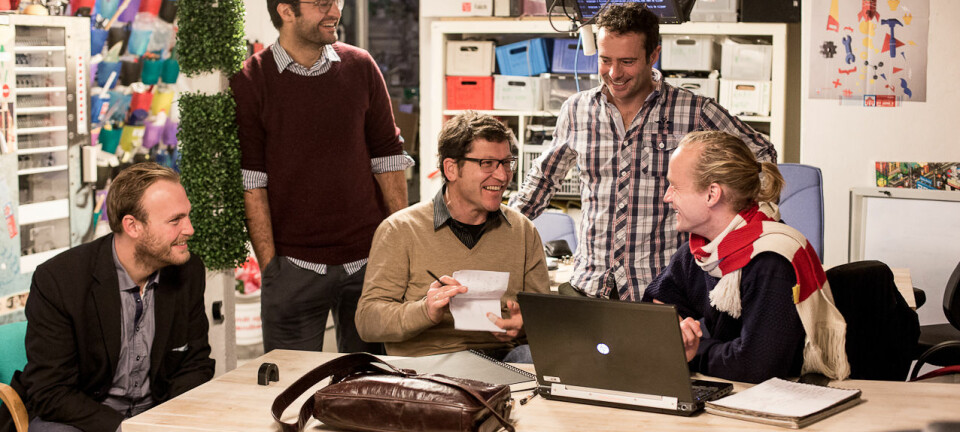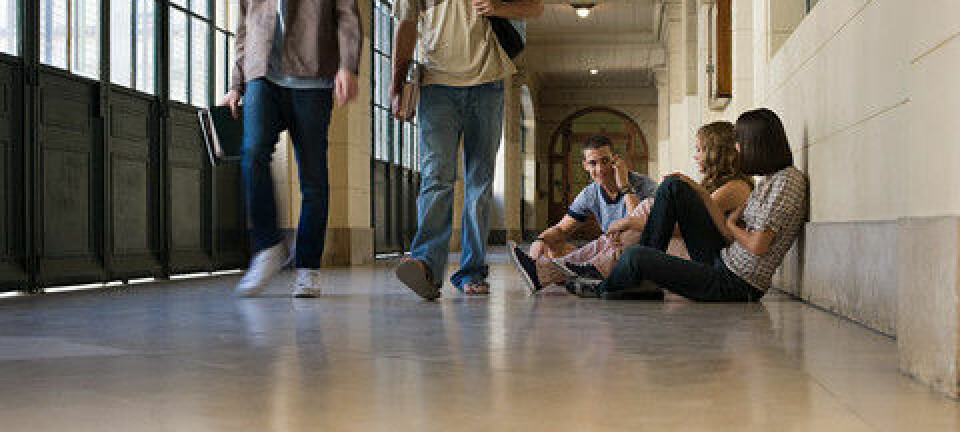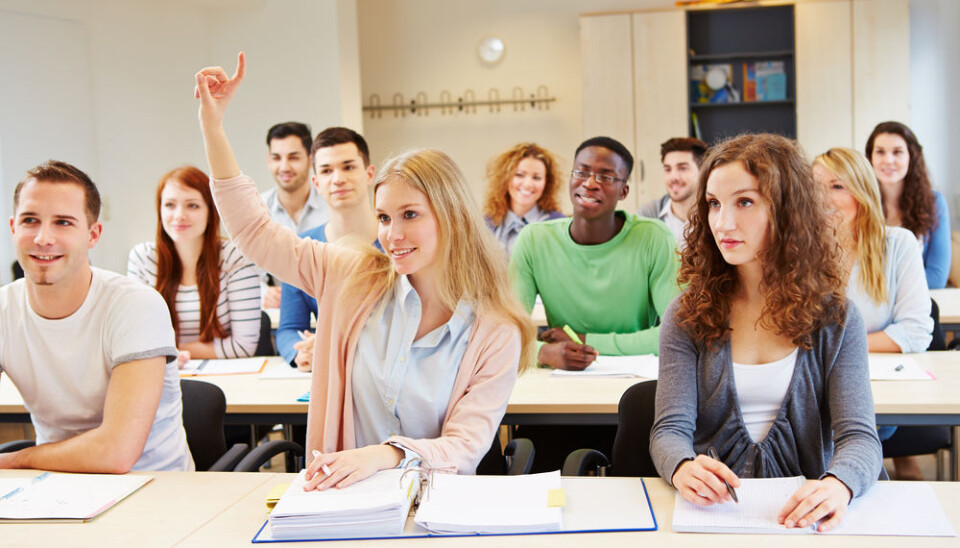
High schoolers get to mingle with world-leading researchers
High school students will play an important role at the EuroScience Open Forum's science conference in Copenhagen on 21-26 June. Their tasks are to engage themselves in the latest scientific discoveries and keep the science debate alive.
If you visit the Euroscience Open Forum's science conference in Copenhagen in June you will most likely run into some very engaged high school students.
If you do, you’ll know you’ve run into one of the 175 members of the ESOF2014 Future Academy. They‘ll be at the Carlsberg City site where they will debate scientific subjects, keep tabs on some of the event’s more humorous venues, and produce art in various forms that involve science. The goal is to show the rest of the world that here in Denmark we take young people and tomorrow's researchers seriously.
"The idea is that we must showcase young Danish people at ESOF," says Estrid Brandorff, a consultant with the Danish Science Factory and the project manager for the ESOF2014 Future Academy. "We want to demonstrate that we have young people who’re engaged in democracy and current science -- and that society takes them seriously."
Young people to meet world's leading researchers
Some of the world's leading researchers in the natural sciences and technology will be found at ESOF. At the conference they will tell each other and the guests about their newest discoveries. This will give the young students a unique opportunity to find out directly from the sources where science is moving at the moment.
"We hope that the people taking part in the Future Academy will get an idea of the kind of research that is currently being conducted in the world and in Europe," says Brandorff. "None of the high schools we’ve talked to have tried sending their students to something like this before."
Brandorff says that the 175 second-year high schoolers in the Future Academy have chosen to follow one of three paths:
-
Science communicator
-
Science debater
- Science performer
Each path takes its own special approach to science:
1: Science communicators are journalists
ScienceNordic's partner Videnskab.dk and the Vallekilde Folk High School have trained the science communicators in science journalism.
"They've looked at the themes that will be dealt with at ESOF and have chosen some to focus on," says Brandorff. "During the conference they’ll interview researchers involved in these themes and then write articles that’ll appear on Videnskab.dk. In addition, they’ll also report for the social media during the conference."
2: Debaters discuss the brain
At various places during the conference you’ll meet the science debaters. With the aid of ScienceTalents, which develops learning environments that cater for talented science pupils, and Experimentarium, a science communication centre aimed at promoting interest in natural science and technology, they have primarily involved themselves with 'A Revolution of the Mind' -- which they will discuss with the public.
They might even give you a check-up on the ethical dilemmas modern brain research poses. If we find ways to optimise the brain's abilities, should we then meddle with it -- or would that be wrong?
"They’ve already had debates with scientists from all over the world via Skype," says Brandorff. "And they've been given presentations to help prepare their arguments and debating skills. So they're ready for the show."
3: Science performers are actors
Students from Odsherred Theatre School, the Danish development centre for performing arts, will approach the task ahead of them in a slightly more abstract way: they will use the forms and methods of art and the theatre to point out problems that involve science.
"They take their own stories about what they wonder about as their starting point -- it's about each of them formulating an anecdote from their own lives," says Brandorff. "For example, 'my mother was ill from cancer and was given treatment. I was amazed that they could treat her using radiation'. They must make these stories into performances and installations that the festival guests can experience."
The hope is the anecdotes and installations will remind the highly esteemed scientists about why they started to interest themselves in research.
"As a rule it’s basic curiosity that gets people to choose a life of studying butterflies," says Brandorff.
New for the science festival to take young people seriously
ESOF takes place every two years and it visits a new European city each time -- but this is the first time there’s a Future Academy around.
"The other events have just been conferences restricted to scientists and journalists," says Brandorff. "They were more closed events and schools were not involved in the scientific programme. We want to show that things can be more anti-hierarchical. And we stress the democratic aspect: everyone must be included."
Brandorff points to another important aspect of the Future Academy: it’s not about forcing young people to choose a career in science.
"We do not have the objective that they must absolutely go in a certain direction," she says. "And we don't follow them through the system. But we hope they discover how research and democratic debate can be used to develop society and that they can see how it’s relevant to them."
She hopes the Future Academy becomes so great a success that the arrangers of the next ESOF will have a Future Academy 2.
Translated by: Michael de Laine
